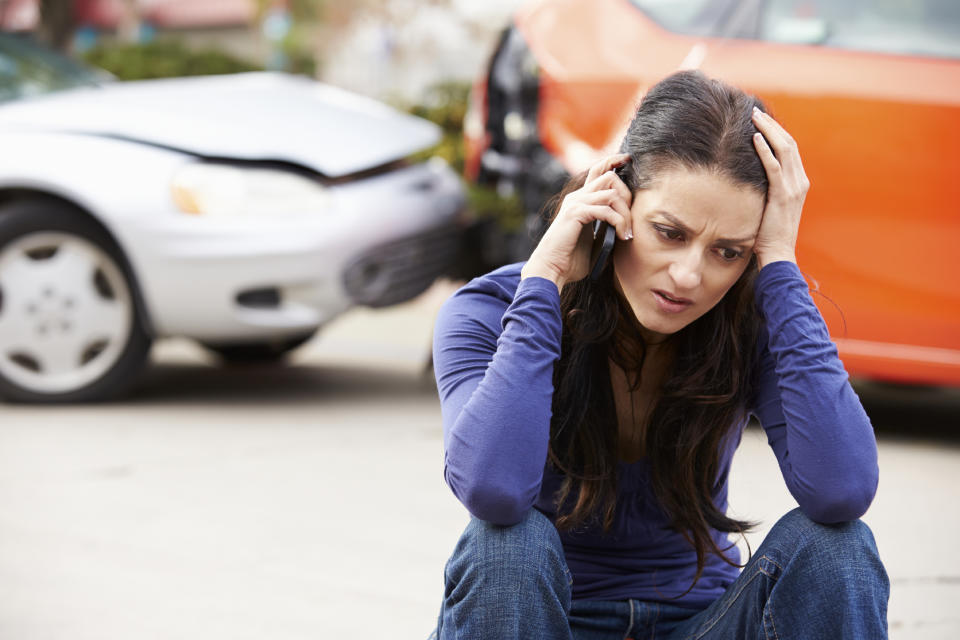Hitting a parked car: 5 things to understand
You just backed into a car in the grocery parking lot. You know you should leave a note, but you're on the fence--why bring on more trouble? What could happen to your
Take a deep breath. You're not the first person to hit a parked car. A 2010 Allstate Insurance study shows that 69 percent of all hit-and-runs in the U.S. involve parked cars; 64 percent of those are in parking lots. "Getting into an accident is not a crime," says attorney Chip Siegel of Las Vegas. "Leaving the accident is where the crime comes in."
Be aware of these five things when you strike a parked car:
1.Stay--it's the law
Leaving the scene of an accident is against the law in every state and can be considered a hit and run.Conviction can net you a misdemeanor charge, hefty fine, and in some states, jail time or community service and suspension of your license and/or registration. For example, in Ohio, possible penalties include a fine of up to $500, six months in jail and a six-month driver's license suspension.
Hit-and-run charges also can add as many as six points to your license, depending on your state's points system, and disqualify you from jobs that involve driving a motor vehicle. In California, you are legally required to try to find the damaged car's owner. If you aren't able to locate the owner of the car you hit, you must leave a note.
2. You are likely to get caught
If the law isn't enough to keep you there, consider this: Odds are good someone saw you hit that car. It might be an actual person or one of the estimated 30 million surveillance cameras in the U.S, according to an industry study.
Law enforcement may look at available evidence, including camera footage, to find the offender--you--and that's where the trouble really begins. "You might get away with it," Siegel says, "but that's not been my experience."
3. Auto insurance and other costs can add up
If police have to hunt you down, you'll not only pay fines, but the other driver's insurance company might go after you for costs, including legal and investigative fees," says Stephanie Behnke, Mercury Insurance claims innovation director. "It can be a very expensive decision for the perpetrator and could lead to jail time," she adds. "You're going to spend more money cleaning it up. Just financially, it doesn't make sense to leave."
"Be aware that a hit-and-run is considered a major violation, so if you're caught and cited not only is it likely to affect your driver's license more than a simple accident, but it may also impact your insurance rates. A minor accident raises your rates by 20 to 40 percent, maybe a bit more," explains Penny Gusner, consumer analyst for Insure.com. "Certain minor property damage accidents, if below the company's chargeable accident threshold, won't result in a surcharge."
"However, fleeing the scene of an accident is a major offense and comes with a rate hike that is substantially higher," Gusner advises. "For instance, in North Carolina you do not receive an auto insurance surcharge if you're in a property damage-only accident where the damage amount is $1,800 or less and you aren't convicted of a moving violation related to the accident. But a hit-and-run resulting in only property damage comes with 4 surcharge points, which results in a rate increase of 80 percent."

 Yahoo Autos
Yahoo Autos 



